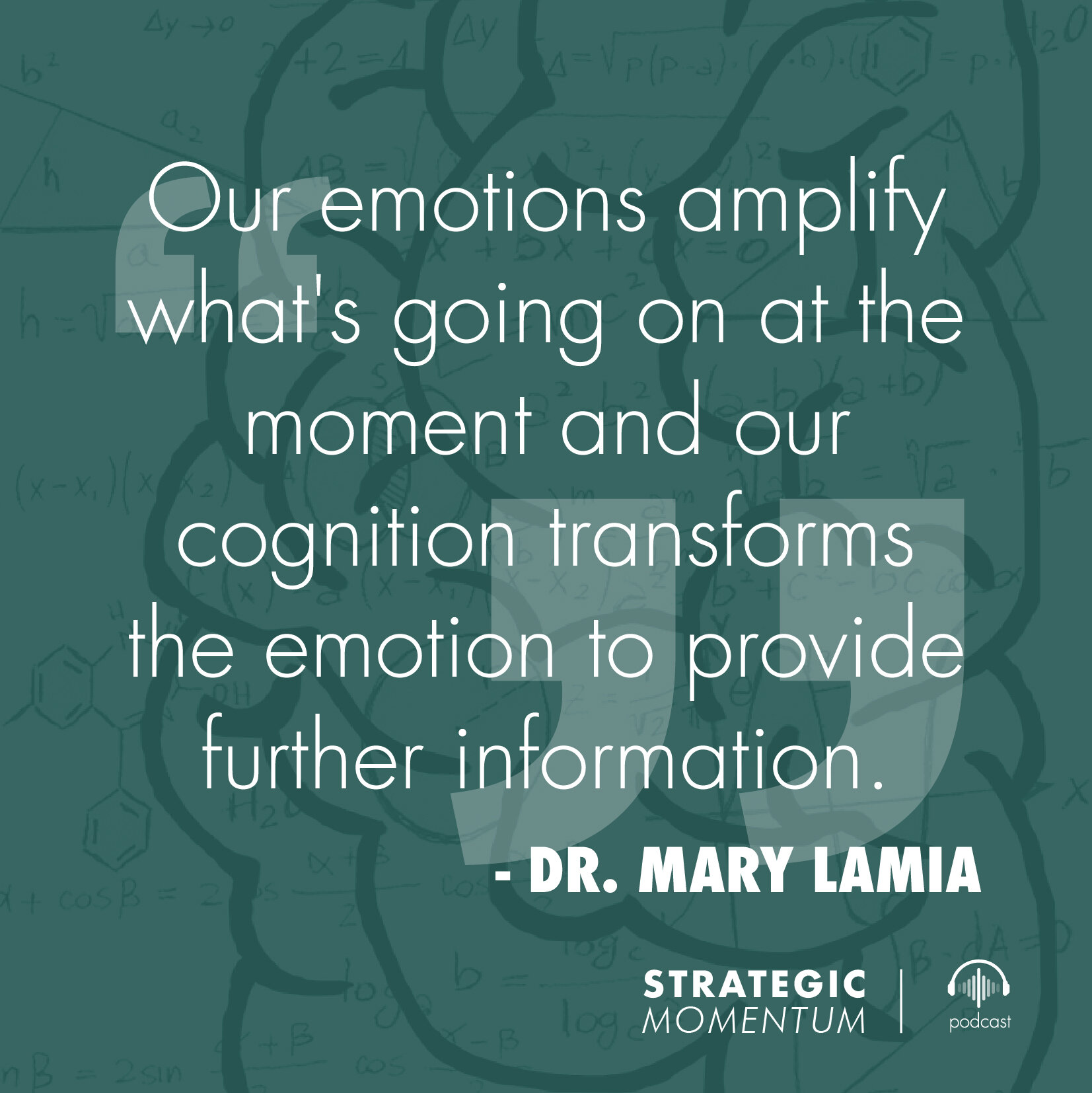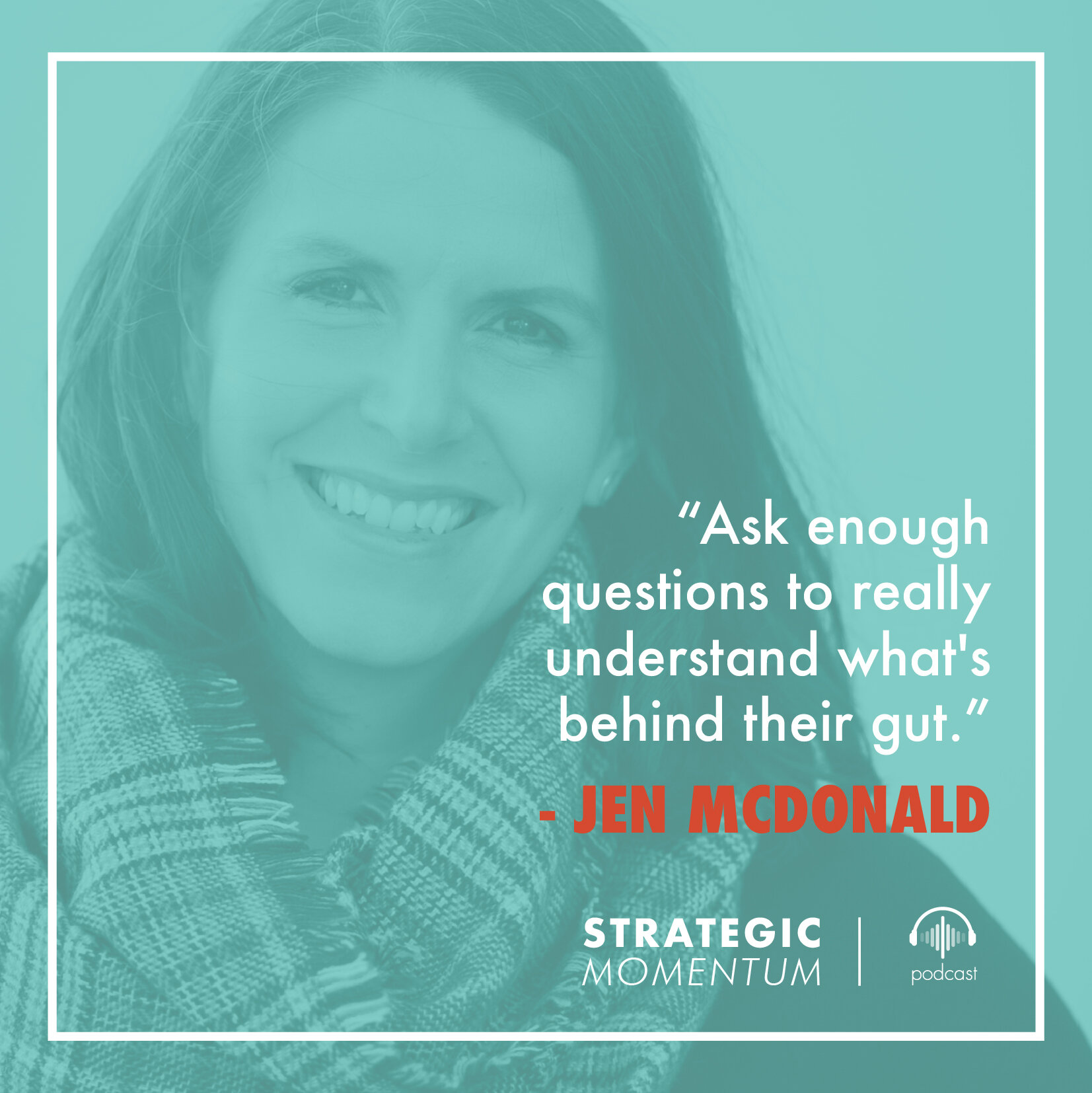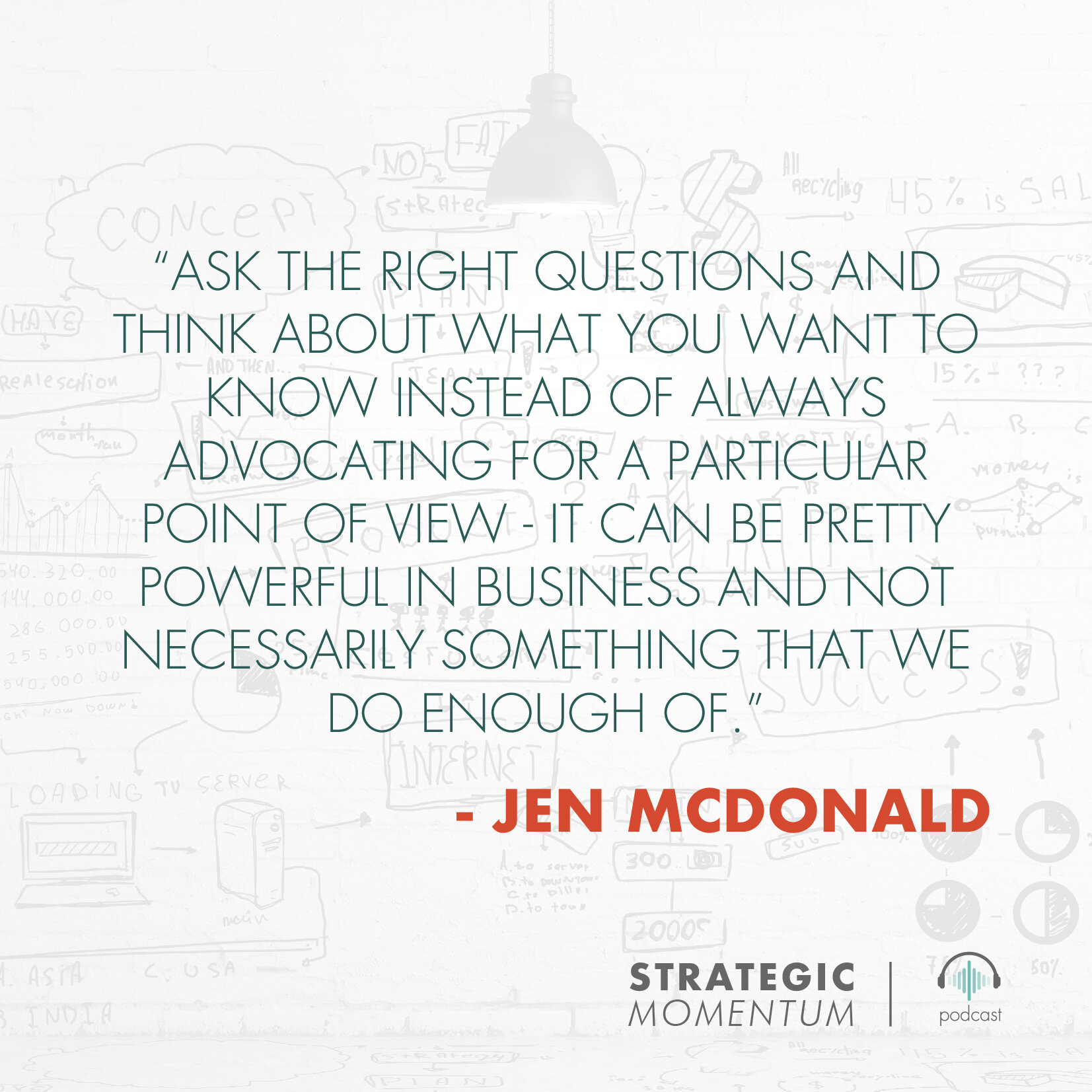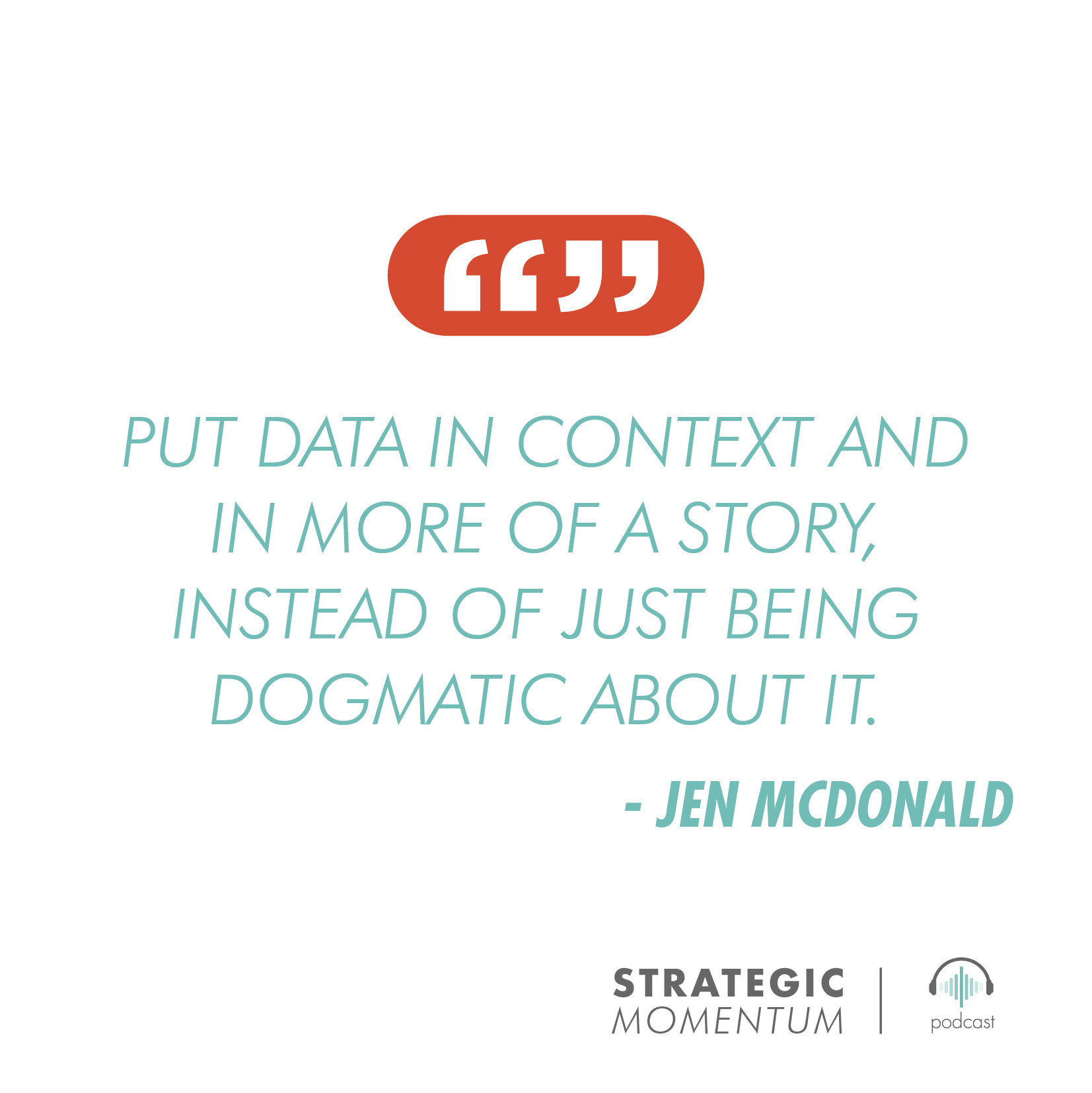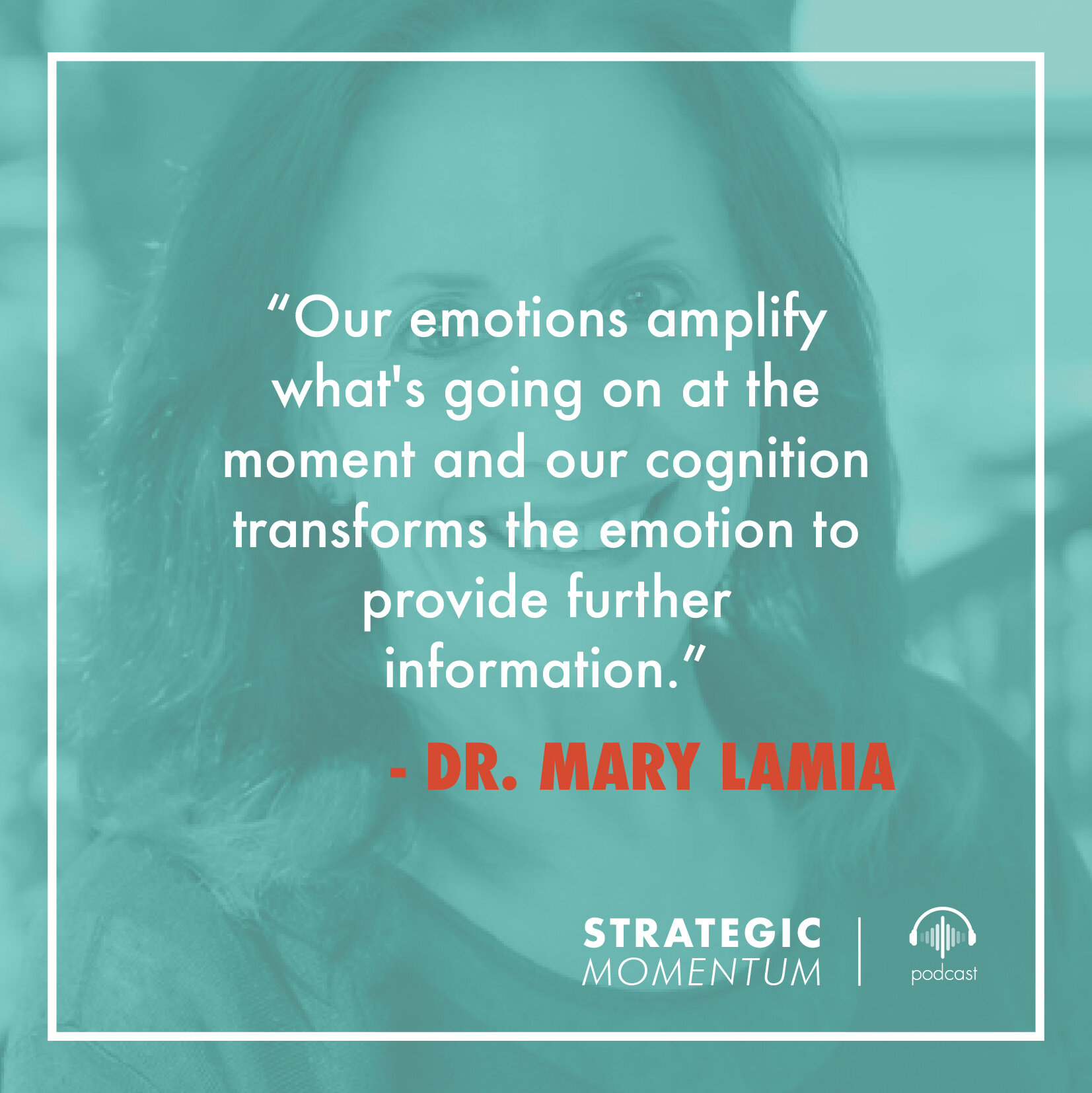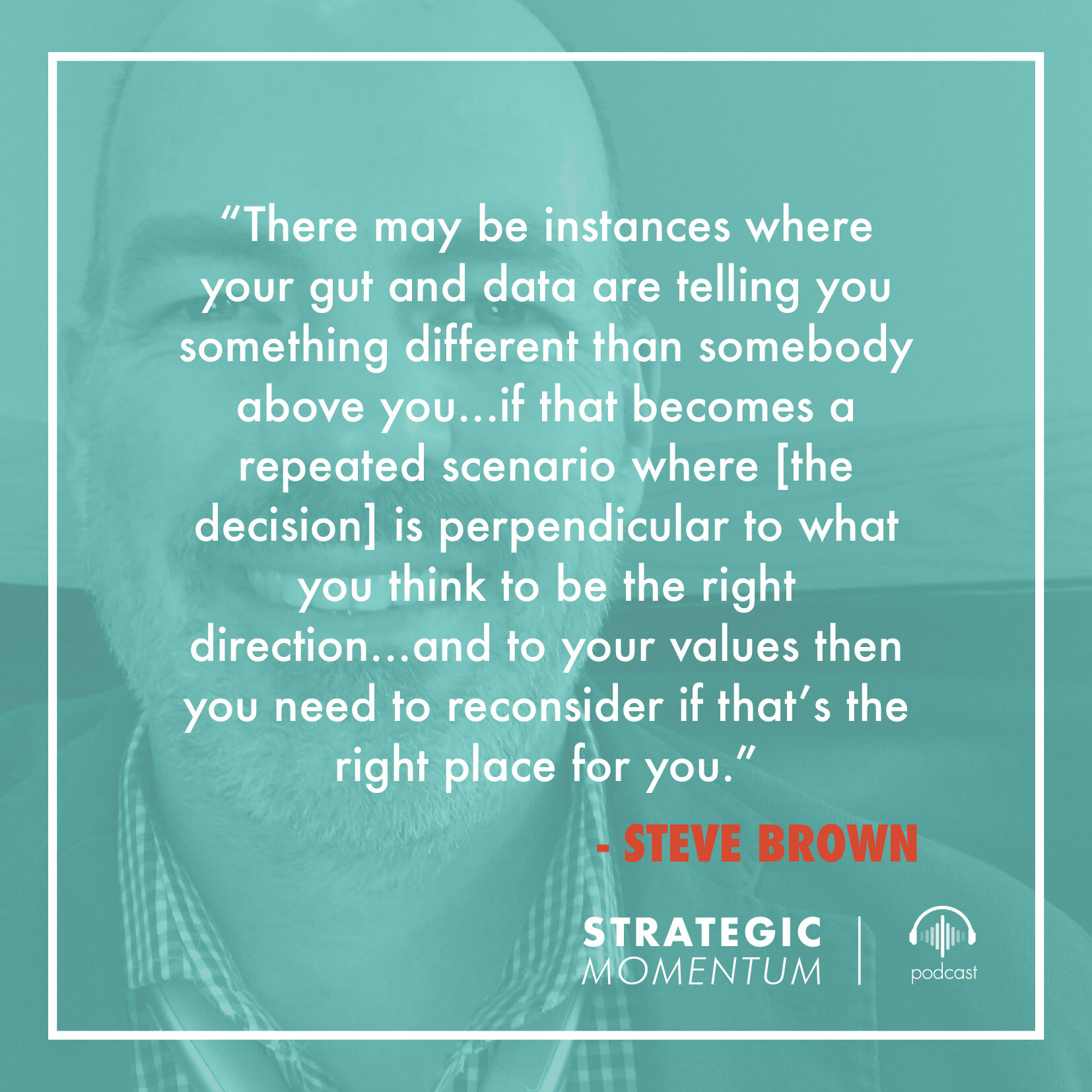Ep. 35 - The Data-Gut Conflict: Bridging the Gap Between Gut-Driven & Data-Driven Decision Makers - with Steve Brown, Dr. Mary Lamia, Kyle Loudermilk, & Jen McDonald
Find Us Wherever You Listen To Podcasts
In the last episode, we looked at how people make decisions in a world increasingly flooded with data. I talked with a panel of experts wanted to understand whether gut-based or data-based decision making was more effective in business. What we deduced is that the best decisions are made when balancing both styles – and the worst decisions are made when you lean too hard one way while neglecting the other.
But when you work with a team or with clients, your own decision-making style isn’t the only one that matters.
So today, we’re looking at how to deal with different decision-making styles in order to alleviate potential conflicts and, ultimately, work better together with your bosses, your clients, and your colleagues.
Returning to help us is our panel of industry experts:
Dr. Mary Lamia, a psychologist, professor and accomplished author who has spent her career studying and encouraging emotional awareness.
Jen McDonald, the Executive Director of Client Engagement at global marketing agency VMLY&R.
Kyle Loudermilk, the President and CEO of GSE Systems, which provides professional and technical engineering, staffing services, and simulation software to clients in the power and process industries.
And Steve Brown, a Director at Salesforce that’s inspiring growth of Salesforce Einstein by leading a team of talented Specialists committed to driving customer success.
Gut-Driven vs. Data-Driven Leaders
When you have work with a gut-driven leader, you face the challenge of convincing them to go against her or his judgment. This person intuitively knows the decision she wants to make and then goes for it. But even when you have strong data that shows the leader's decision may not be the best one, you have trouble shifting her perspective.
I’ve seen this happen myself, and this is the situation Steve Brown found himself in earlier in his career:
The CEO of a startup, who had a very illustrious career, was strictly driven by gut. “There was no arguing with his gut, no matter what data you had. I found that incredibly frustrating to work for, because I felt even when I had the data to backup my gut that was at odds to his gut, there was no changing his mind.”
Jen McDonald had a somewhat similar situation with one of her clients. They had worked with a brand manager before presenting some creative work, but then during the review process, “you could just tell that he just didn't feel it, didn't like it.”
Bridging the Gap to Alleviate Inertia
As a result of a conflict like this, you can feel anxious. What can you do in this situation to help guide the organization towards the best decision? How do you influence someone to see your point of view when your decision-making styles conflict?
Steve says that, often, leaders become leaders over time because they have developed this good sense of gut – so you should try to support your position with compelling data. Jen adds that gut-driven people appreciate stories and creativity, so your data will be more compelling if you create a narrative behind those numbers to bridge the gap between gut-based and data-based decision makers.
Jen also urges people to better understand how others are seeing the world. There’s always something behind their rationale and you may need to tease it out, particularly if you are working with a client who is completely gut-driven. “Because sometimes what's behind their gut actually might have some analysis or experience or data behind it that might be a testable proposition.”
Jen echoes what Dr. Lamia told us in our last episode: our experiences get logged away in our brains, and these serve as our own set of data that we check every decision against in real time.
“Their experience has given that to them and why should they ignore something that's such important information? Our emotions are behind all of the sensations that are considered to be gut intuition. But the meaning we give to any intuitive sense is a contribution of our cognitive system.” - Dr. Lamia
But by asking questions, Jen suggests, we can start to reveal the experiential data that gut-based decision makers are using and get more context on how they’re approaching a decision, even if they’re not entirely aware themselves.
Gut-based decisions aren’t random. It comes from somewhere, although sometimes it's hard to identify exactly where. Even the person who is using their gut sometimes doesn't even know where it comes from. So it's important to just engage them in conversation instead of locking horns over a data point.
No matter which decision-making approach you prefer, whether you’re gut-driven or data-driven, bridging the gap between you and your co-workers comes down to open and consistent communication.
Key Takeaways:
Find a way to strike a balance between data and gut is key, even with your peers, clients and bosses.
Take a step back and gain perspective on why another person thinks the way they’re thinking. It can be especially frustrating if you lean heavily towards data, but you need to understand that some people are using their gut as data, especially successful leaders who have been around the block a few times.
Practice asking questions, insightful questions, that will help everyone understand the story behind someone’s seemingly purely gut-based decision.
Inversely, learn to tell the story behind data so that everyone can understand the numbers you’re bringing to the table in context.
Foster better communication on both sides to share our perspectives, so you can leverage both gut and data to make the best possible decisions.
Be wary if this conflict comes up repeatedly; if you’re constantly in opposition with your team’s or superiors’ decisions, especially if they don’t align with your core values and you’ve made an effort to voice your opinion, then you might not be in the right place.
Download the eBook
Get the key insights and advice from this episode in a PDF presentation.
Resources:
Connect with Steve Brown on LinkedIn
Connect with Kyle Loudermilk on LinkedIn
Connect with Dr. Lamia at MaryLamia.com
Subscribe to the Strategic Momentum podcast:
On Spotify








